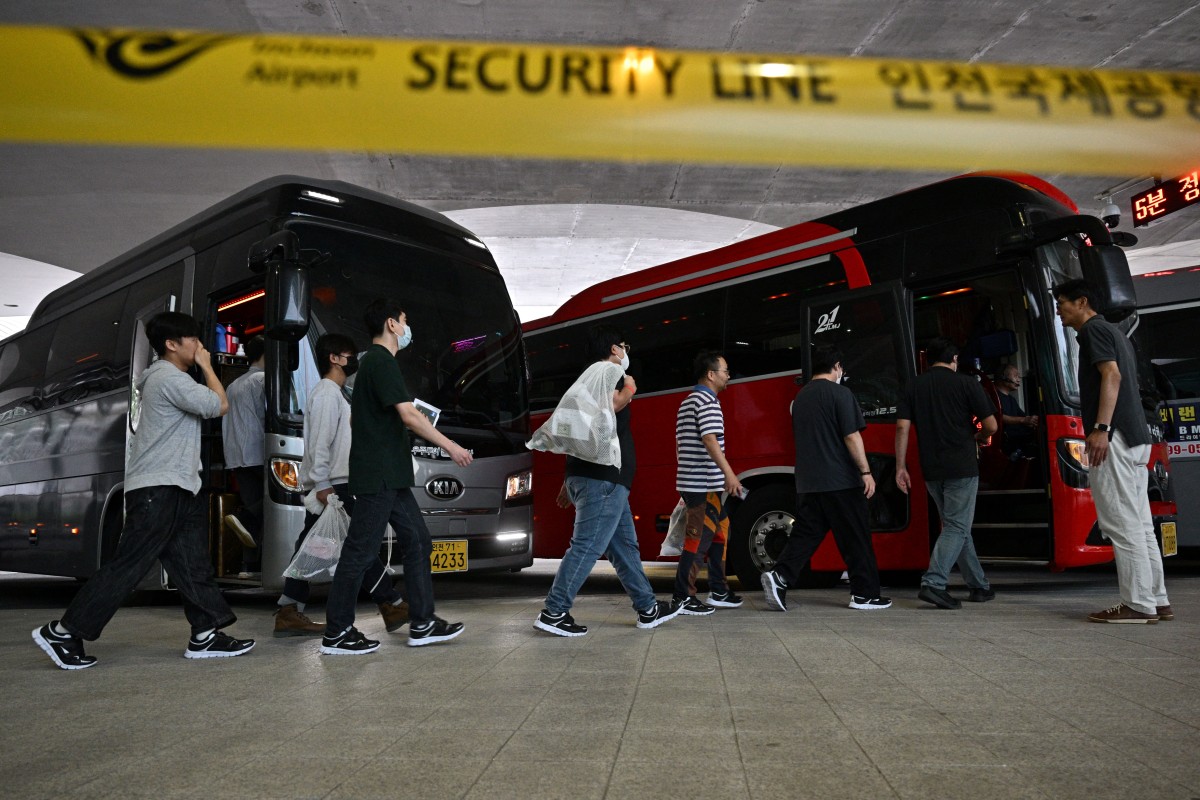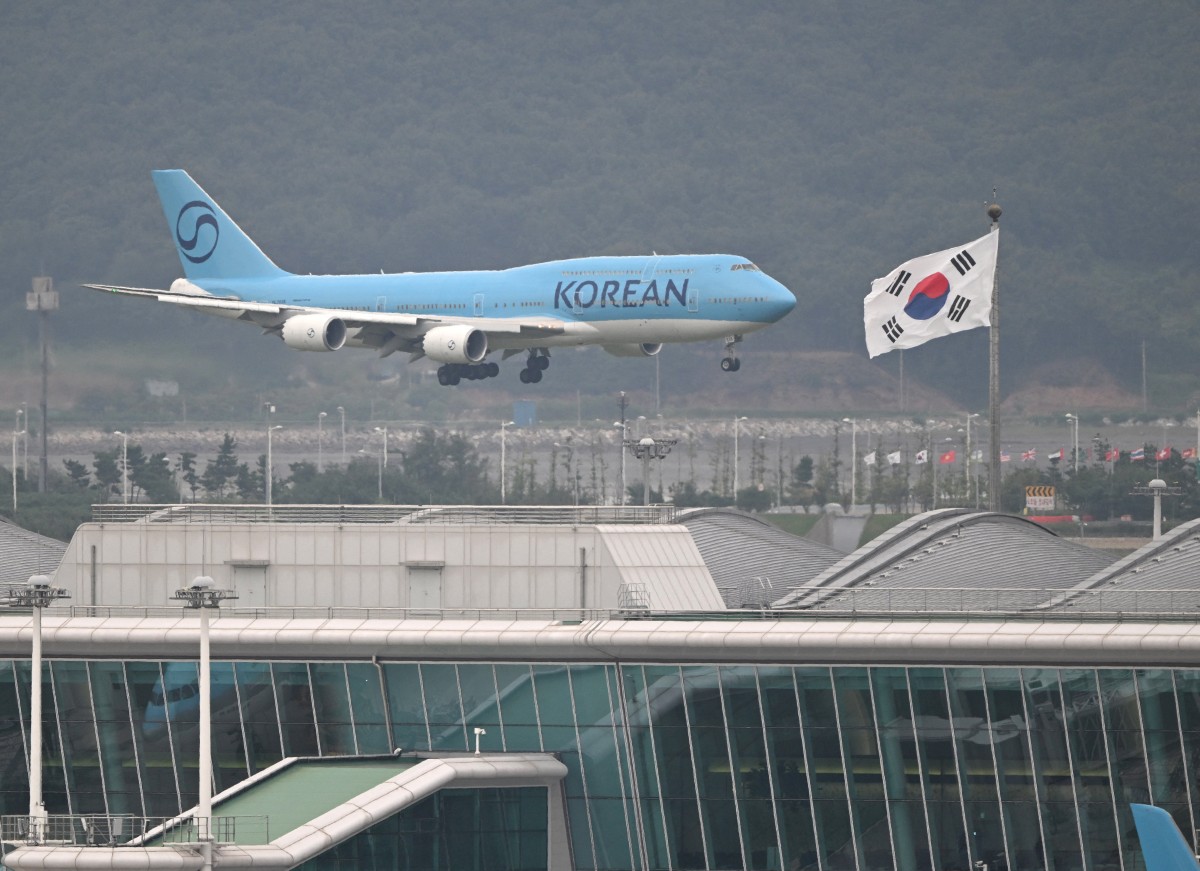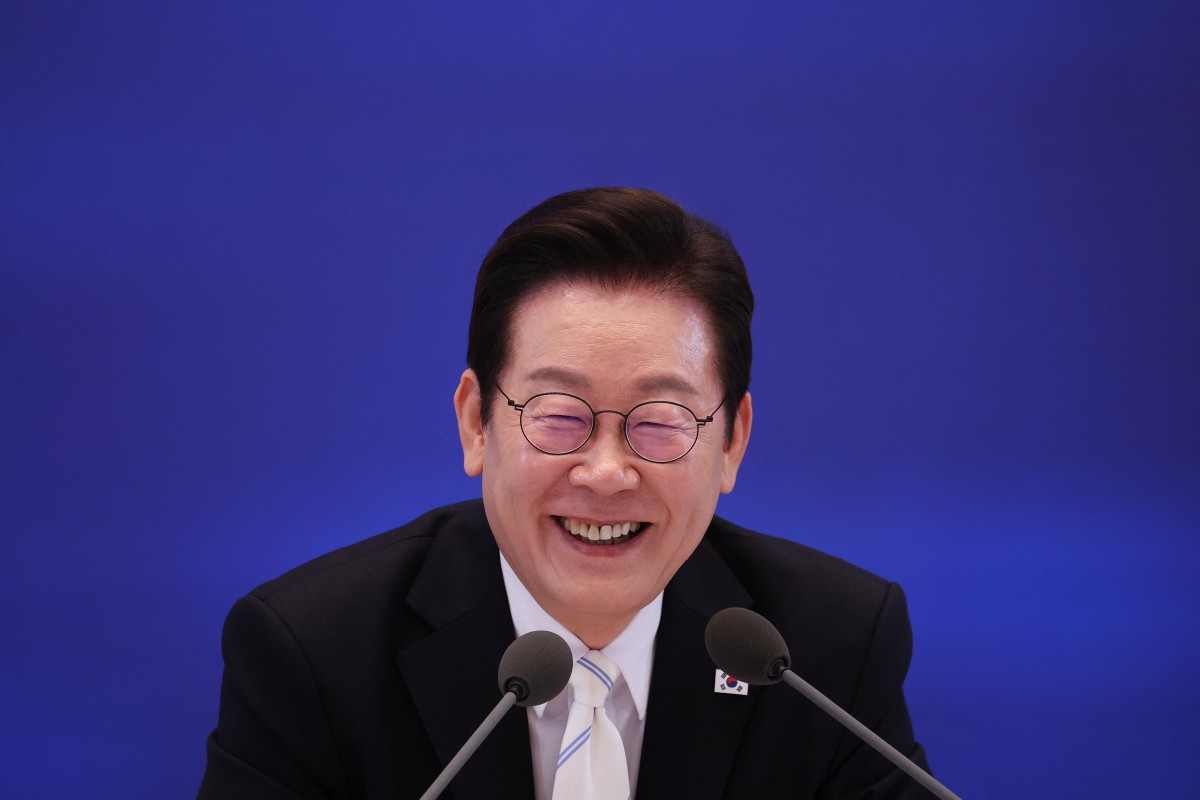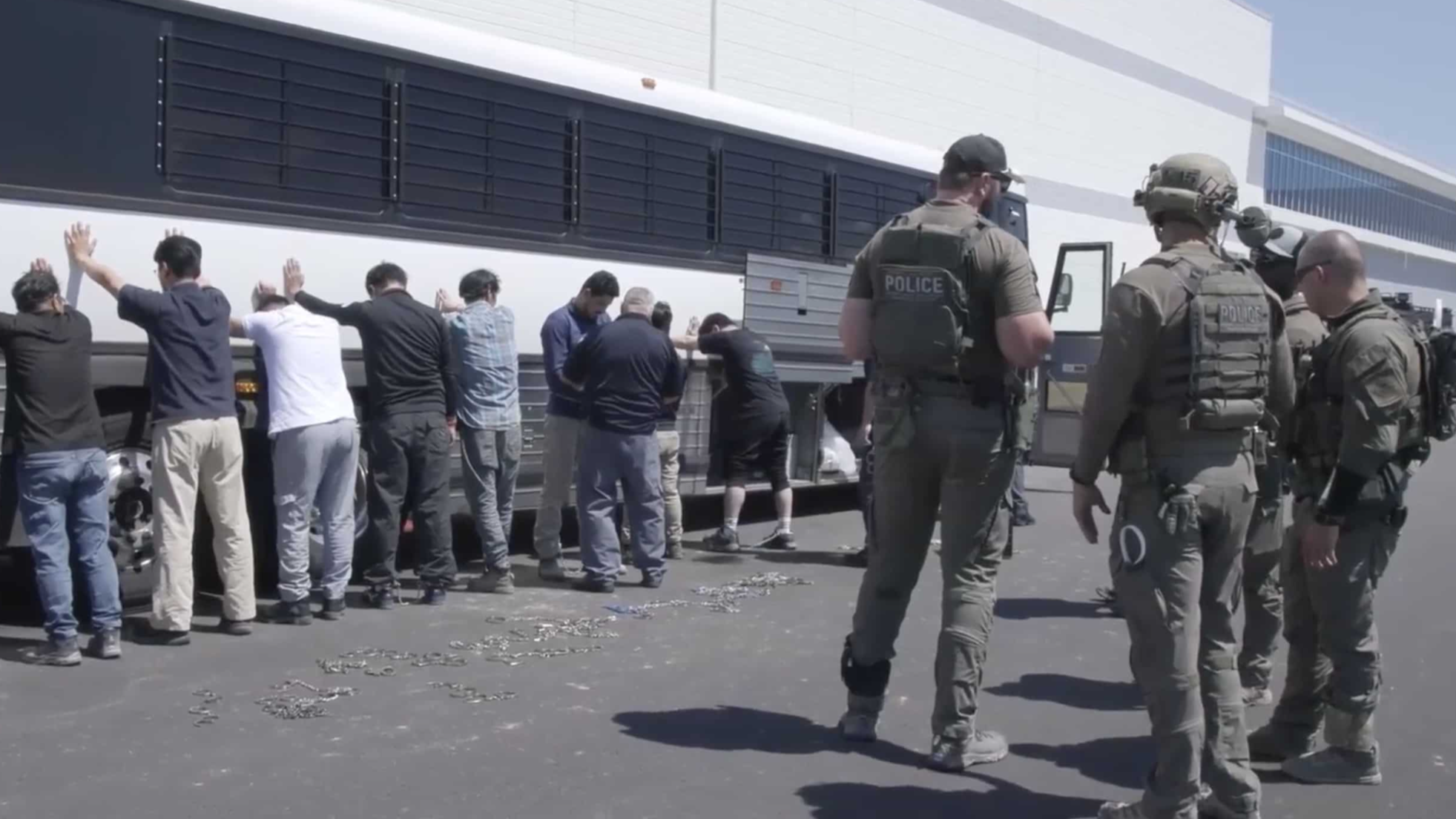
Hundreds of South Korean workers detained in a US immigration raid last week have returned home, ending an ordeal that has strained ties between Washington and Seoul and raised doubts about billions of dollars of planned Korean investment in the US.
A Korean Air Lines Co jet carrying 330 people — 316 of them South Koreans — touched down at Incheon International Airport on Friday to a rousing welcome from anxious families. The arrivals hall buzzed in anticipation of the return of the workers, with camera crews packed shoulder to shoulder and lenses fixed on the exit doors.
Outside, more than 10 buses idled in formation, while family members and well-wishers waved welcome signs. Among those in the crowd was a six-month-old baby waiting for the return of her father and on the plane was a pregnant woman.
Relatives wept and colleagues held signs reading “Welcome Back, Free and Safe,” in scenes of relief and joy as the workers gradually poured into the waiting hall.

“I couldn’t sleep at all — the anxiety gave me insomnia,” said Cho Yangsoon, 67, who waited with her daughter and daughter-in-law to welcome her 46-year-old son. He left for the US three months ago to work on pipe installation. “Every day felt unbearable, not knowing what had happened,” she added.
“The silence was the hardest part. For days there was no word, no call, nothing but the news. It was suffocating,” she added.
READ MORE: US immigration agents arrest hundreds at Hyundai plant, mostly Koreans
The unprecedented raid at a Hyundai Motor Co-LG Energy Solution Ltd battery plant under construction in Georgia has fueled public anger in South Korea, casting a cloud over President Lee Jae-myung’s young presidency. The president’s approval rating slipped 5 percentage points from a week earlier to 58 percent, according to the latest Gallup Korea poll released Friday, with the diplomatic situation cited as the biggest drag.
The Sept 4 raid took place just two weeks after Lee and President Donald Trump held a summit to reaffirm their economic and security ties, following a trade deal that includes a pledge by Seoul to invest $350 billion in the US.
The raid has already delayed construction of the plant by several months, Hyundai Chief Executive Officer José Muñoz said in an interview Thursday, as disruption spread across the industry.
While both nations have largely tried to limit the damage caused by the incident, the initial images last week of shackled workers at a site showing South Korea’s investment commitment to the US have shocked the Asian nation.
Lee said on Thursday that the incident could have a significant impact on direct investment into the US as Korean firms grow wary of a potential immigration crackdown.

President Lee’s chief of staff, Kang Hoon-sik, greeted the returning workers and told reporters the government will push to improve the US visa system, including considering a new visa category. He said LG Energy plans to send other workers to the US, while advising those who just returned not to go back immediately.
One woman, who requested anonymity, said she lost contact with her husband for three days after the raid and filed a police report before being referred to the Atlanta consulate. She said such raids aren’t unusual, with workers often hiding in cars until inspectors left, but this time authorities pulled people out. After a final text from her husband saying he was in a car, communication stopped. Despite the ordeal, she expects him to return to the US due to the higher pay available there.
The fallout from the raid adds to strains over a July trade deal that has yet to be signed and sealed in writing. The US imposed a 15 percent levy on most Korean imports and agreed to the same rate for tariffs on cars and autoparts. But Trump still hasn’t signed an executive order to lower the car tariffs, while the two sides remain split over Seoul’s investment pledge, a key part of the accord.
With the crackdown putting billions in Korean investment at risk, Commerce Secretary Howard Lutnick told CNBC in an interview that South Korea must accept the trade deal requiring US investment or face tariffs. He added that Trump plans to ease short-term visas for foreign skilled workers needed to build new factories.
“Given Trump is a master at creating leverage, there’s a high chance he’ll try to spin this incident to his advantage — basically saying ‘I’ll give you the visas, so come.’ Lutnick has already said that much,” said Park Won-gon, an international relations professor at Ewha Womans University in Seoul.

Over in Japan, a similar investment pledge for $550 billion enables Trump to raise tariffs if Tokyo doesn’t provide funding for projects within 45 days. That clause was included in a memorandum of understanding released shortly after Trump signed an order lowering Japan’s car tariffs to 15 percent.
Lee will likely try to resist signing a lopsided agreement but “the situation doesn’t look favorable for South Korea,” Park said, pointing to Japan’s deal.
Korean carmakers are under significant pressure with Japan’s carmakers now enjoying an advantage over their Korean rivals, Kathleen Oh, Morgan Stanley’s chief Korea economist, said in a report this week.
South Korea’s exports to the US dropped 12 percent in August from a year earlier, a hefty fall for an economy highly dependent on overseas sales. And there could be more pressure to come.
“Remember, security demands haven’t even been brought up yet,” Professor Park said, referring to the likelihood Trump will want Seoul to pay more money to cover the hosting of US troops in the country. “Honestly I don’t see how South Korea can hold out.”


